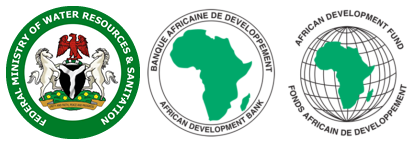Our Interventions
The major donors involved in the sector include WB, EC, DFID, JICA, UNICEF, ADB and NGOs like WATER AID. Until recently, most donor interventions have been in the urban sector.
Donor interventions in RWSS sub-sector are limited in scope compared to the investment required to achieve the SDGs. These include support to establish relevant institutions and capacity building as well as provision of RWSS service.
Donors intervention takes several forms, including (i) Direct project execution, (ii) Area based intervention, and (iii) Activity based intervention. Most of the donor interventions have been limited in terms of the overall financial requirements of the sector.
However, these interventions have been strategically targeted to assist Government in addressing problems related to institutional reforms, infrastructure provision and capacity building, in an effort to initiate a process for improved sector performance, such as the case with EC and UNICEF involvement.
Recent donor interventions in the sector have shown that the participation of communities in initiating and taking key decisions in RWSS projects, under a demand responsive approach, enhances sustainability. All future interventions would have to ensure adequate participation of beneficiary communities.
Before the ADB RWSSI intervention in Nigeria, the ADB water portfolio included eight projects with a total commitment of about USD 780 million. The projects included: First Multi WS Project, Plateau/Nasarawa States WS Project, Niger State WS Project, Bauchi Township WS Project, Edo/Delta States WS Project, Anambra Rural Infrastructure Project, Ibadan WS II project and Ibadan Emergency WS Project. The projects were mainly in the urban water sector, but one project in rural sub-sector was in Anambra state. One of the key contributions to the sector, through the multi state WSS project, was the construction of four Regional and two Reference Laboratories for water quality monitoring in Akure, Enugu, Gombe, Kano, Lagos and Minna. The ADB also provided support to the FMWR to prepare the National RWSS Programme.
Bank previous experience, in water supply and sanitation projects, which was mostly focused on urban areas, is of mixed results with projects that were successfully completed and are providing services as well as unsuccessful projects. One could observe that it has more success than failure despite the delays. For instance, the multi state water supply project has been successfully completed and its Cross river State water supply sub-project has been a show case for water projects in Nigeria in many ways.
First the project achieved its objectives whereby water production increased from 50,000 to 438,000 m3/d and serving over 6.4 million people and resulting in improvement of health condition and productivity of the people. The Public Private Partnership (PPP) arrangement through a management contract and private operators of water kiosk is laudable on improving the financial performance of the water board as well as on poor urban through a cross-subsidized tariff. With the success of PPP, support is extended by the World Bank to the state. Under the same multi-state WSS project, six national/reference water quality laboratories have been established across the country, which have positive contributions not only in monitoring of water quality but also in research and collaboration with international and domestic institutions.
The major reasons for having delayed and aged projects were utilization of loan balances after completion of the original projects, as the case with the Ibadan emergency water rehabilitation project and non-familiarity with the Bank’s disbursement and procurement procedures. The only project which was terminated before completion is the Anambra rural infrastructure, because of poor performance of the contractors. It is pertinent to mention that this project had a complex design, lacking detailed designs and involving multi sectorial activities of water supply, electrification and industrial estates and several executing agencies under a joint implementation unit. The division of Anambra state into three states (Anambra, Enugu and Ebonyi) during the implementation period increased the number of authorities from three executing agencies to nine ones with complications of activities divisions and project management.
The present ADF financing is the first intervention of the Bank in the National RWSS
programme and falls under the Bank’s Rural Water Supply and Sanitation Initiative (RWSSI). In line with the RWSSI, the interventions in National RWSS programme will allow to redress the existing lopsided development and investment favoring urban areas and to improve health conditions and eventually contribute towards poverty alleviation in rural areas of Nigeria.


